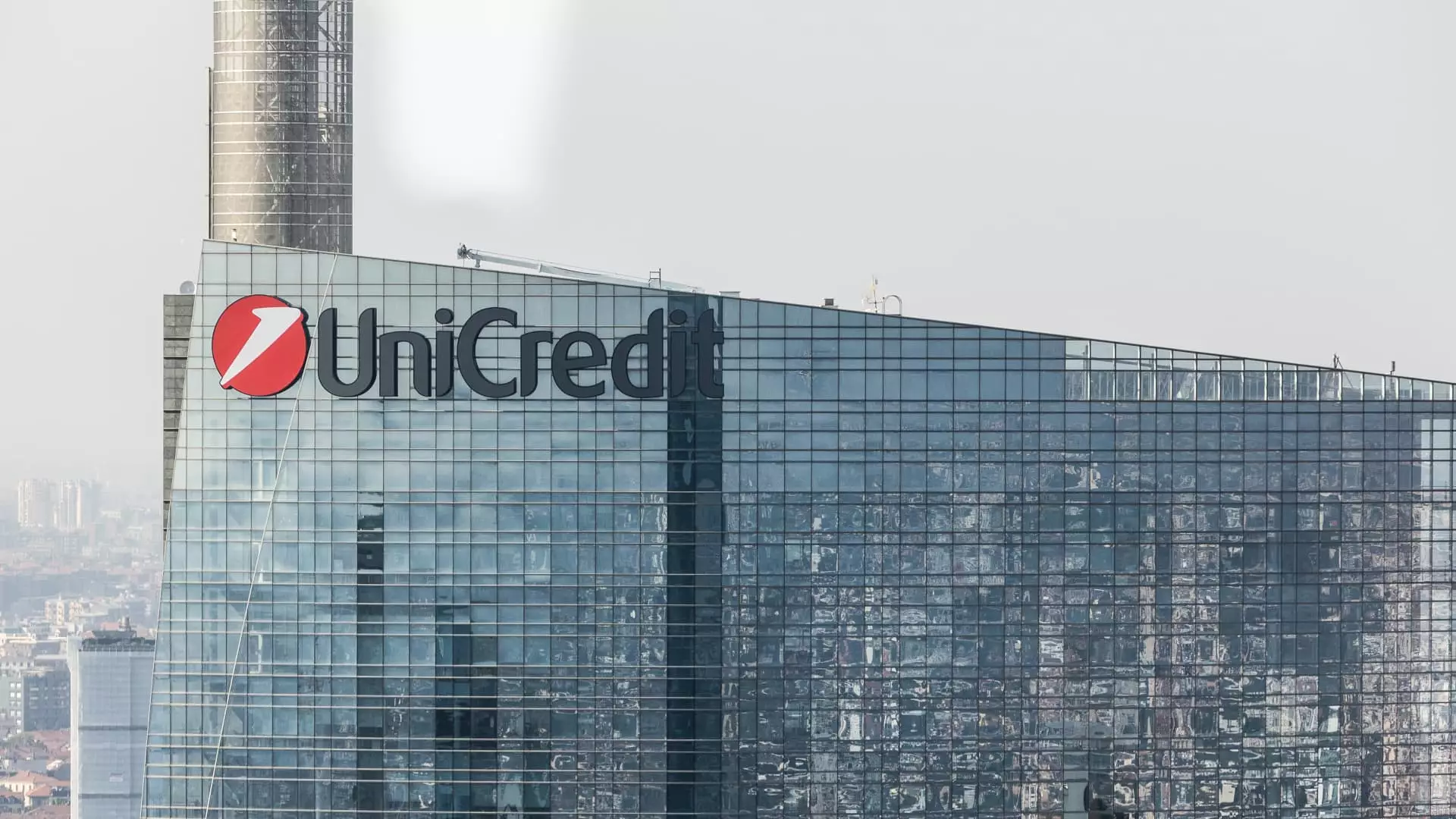In the latest quarter, UniCredit shined with a remarkable 25% surge in net profit, elevating expectations and boosting investor confidence. This impressive leap to €3.3 billion suggests strength and resilience amid uncertain economic conditions. Yet, beneath this luminous headline lies a complex reality that demands deeper scrutiny. While profit figures might shout success, they often mask underlying vulnerabilities—particularly when driven by one-off gains and strategic maneuvers that aren’t sustainable. A reliance on transient factors, such as consolidations or accounting adjustments, can give a false sense of stability, leading stakeholders to overlook the fragility of long-term growth.
The bank’s decision to hike its full-year profit outlook to €10.5 billion, rising from earlier forecasts, appears optimistic. Still, such projections are inherently speculative, especially given the unpredictable geopolitical landscape and regulatory hurdles. What might seem like a triumphant narrative of expansion is, in fact, a delicate balancing act—one vulnerable to external pressures and internal inconsistencies.
The Paradox of Revenue Decline Amid Record Profits
While the headline figures paint a rosy picture, the reality of UniCredit’s revenue story is less glamorous. A 4.7% decline in net revenues signals a concerning trend—one that questions the sustainability of its current profit margins. The drop, partly attributed to consolidating assets in Germany, indicates that the bank is perhaps over-relying on aggressive repositioning rather than genuine organic growth. Moreover, the modest 0.3% decrease in net interest income suggests that core revenue streams are under pressure, even as profit margins seem to remain resilient — at least for now.
This dichotomy exposes a critical flaw in the broader banking narrative: superficial prosperity can often obscure underlying struggles. Profitability metrics are often manipulated or inflated through strategic accounting practices, or by temporary market conditions. As such, investors and regulators should remain cautious, scrutinizing beyond the headlines to detect vulnerabilities that could ignite future crises.
The Strategic Retreat from Mergers: A Sign of Internal Turmoil?
UniCredit’s abrupt withdrawal from its planned acquisition of Banco BPM underscores a deeper issue—regulatory nationalism and political interference. The Italian government’s “golden power” intervention, which thwarted the deal, exemplifies how national interests can override corporate strategy, often at a cost to market efficiency and investor confidence.
This move reveals a stark reality: in Europe, the space for strategic consolidation is shrinking amidst rising political scrutiny. While protecting national sovereignty is understandable, often these interventions introduce unpredictability that stifles growth and innovation within the banking sector. For UniCredit, abandoning the deal wasn’t just about a failed acquisition—it symbolized the limitations imposed by nationalistic policies, which could threaten future strategic initiatives.
Furthermore, CEO Andrea Orcel’s candid critique—that the deal had become a “drag”—reflects an underlying frustration with the regulatory environment. His emphasis on creating value and building “bulletproof” institutions shows a pragmatic, if somewhat disillusioned, perspective on the current state of European banking. Instead of pursuing expansion at all costs, the focus now turns inward—on strengthening what the bank already controls rather than chasing elusive mergers.
The Illusion of Stability in a Politicized Environment
The broader European context amplifies the risks faced by banks like UniCredit. Governments wielding powers to block mergers under the guise of safeguarding national security effectively introduce a new layer of uncertainty. This politicization complicates the landscape, pushing banks to become more cautious, less aggressive, and potentially less innovative.
While some might see this environment as a safeguard, preventing reckless consolidation, it simultaneously hampers the natural evolution of the banking sector. The irony lies in the fact that, under pretext of stability, these interventions often result in stagnation, reducing competitive pressures and damaging long-term efficiency.
UniCredit’s attempts at strategic M&A, despite these barriers, demonstrate a desire for growth and transformation, but the political constraints serve as a stark reminder that in Europe, economic interests are often subordinate to national policies. This friction weakens the very foundations of a true, resilient banking system capable of adapting to global challenges.
The Path Forward: A Choice Between Stability and Growth
UniCredit’s recent financial report is a dual-edged sword. On one side, it showcases a resilient financial position, powerful profits, and a clear future outlook. On the other, it exposes the vulnerabilities stemming from reliance on transient gains, geopolitical interference, and internal strategic frustrations. The bank’s retreat from the merger bidding war reveals a landscape where political influence often hampers economic vitality, threatening to entrench stagnation in a fast-evolving financial world.
For a banking giant like UniCredit, true stability should not hinge on short-term profits or superficial indicators but on transparent strategies rooted in sustainable growth, innovation, and pragmatic resilience. Yet, as long as political considerations continue to take precedence over economic logic, the European banking sector risks losing its competitive edge, trapped in a cycle wherein superficial success masks a deeper identity crisis.

